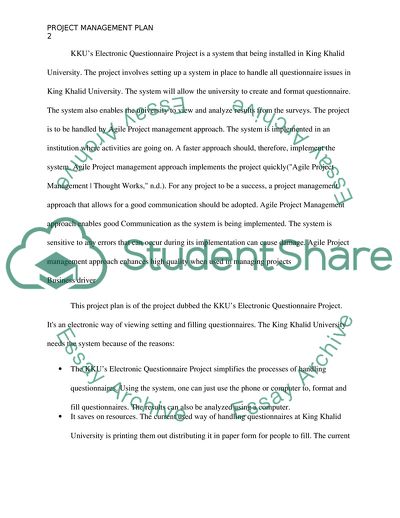Cite this document
(The KKUs Electronic Questionnaire Project Case Study Example | Topics and Well Written Essays - 2000 words - 1, n.d.)
The KKUs Electronic Questionnaire Project Case Study Example | Topics and Well Written Essays - 2000 words - 1. https://studentshare.org/information-technology/1877906-project-management-plan
The KKUs Electronic Questionnaire Project Case Study Example | Topics and Well Written Essays - 2000 words - 1. https://studentshare.org/information-technology/1877906-project-management-plan
(The KKUs Electronic Questionnaire Project Case Study Example | Topics and Well Written Essays - 2000 Words - 1)
The KKUs Electronic Questionnaire Project Case Study Example | Topics and Well Written Essays - 2000 Words - 1. https://studentshare.org/information-technology/1877906-project-management-plan.
The KKUs Electronic Questionnaire Project Case Study Example | Topics and Well Written Essays - 2000 Words - 1. https://studentshare.org/information-technology/1877906-project-management-plan.
“The KKUs Electronic Questionnaire Project Case Study Example | Topics and Well Written Essays - 2000 Words - 1”. https://studentshare.org/information-technology/1877906-project-management-plan.


